Breast Reduction in Tunis
Search and Compare the Best Clinics and Doctors at the Lowest Prices for Breast Reduction in Tunis
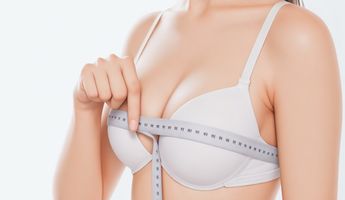
Find the best clinics for Breast Reduction in Tunis
With Medijump you can browse 5 facilities offering Breast Reduction procedures in Tunis. The cheapest price available is $1,601 in Mahdia
Breast Reduction in Tunisia
Price: $ 1,601
Breast Reduction in Mahdia
Price: $ 1,601
Breast Reduction in Monastir
Price: $ 1,653
Czech Republic offers the best prices Worldwide
Price: $ 89
From 37 verified reviews
Saoussen Saidani, 13 June 2020
My 12 year old daughter Lina has had surgery Pancreas tumorHeavy Operation which went very wellI thank all the staff of the Pasteur clinic for their hospitality and their hygiene ...I thank the doctors who attended the operation and in particular the surgeonAYADI Sofiene who accompanied us from the start for his professionalism as well as DR Walid Miraoui. The discovery of this tumor is done in a very short time a week to manage allThe support of Surgeon Ayadi Sofiene was really perfect as a parent we were reassured and above all in confidence.And especially I thank them for the moral support of My Daughter Lina who kept the smile until the end and who It is found in Total confidenceThank you so much for saving our childMr er Mrs Saidani
From 11 verified reviews
Toumi Mondher, 02 April 2019
The Department of Extraction and Billing at the Center of Imaging and Radiology, two patients, treated me with a reputation as a Tunisian clinic, and I bear the responsibility to speak this
Clinique Taoufik, can be found in Boulevard Mohamed Bouazizi, Tunis, Tunisia and offers its patients Breast Reduction procedures as well as 225 other procedures, across 24 different procedure categories. At present, there is no pricing information for Breast Reduction procedures at Clinique Taoufik. The pricing information is quite specialised, so it's only available on request, and the average price is around ฿78,090. Many medical professionals work at the Clinic, with 10 in total, and Clinique Taoufik is accredited by just one known accreditations institute, ISO 9001:2008
Clinic Apollon, can be found in Boulevard Mohamed Bouazizi, Tunis, Tunisia and offers its patients Breast Reduction procedures as well as 90 other procedures, across 1 different procedure categories. At present, there is no pricing information for Breast Reduction procedures at Clinic Apollon. The pricing information is quite specialised, so it's only available on request, and the average price is around $2,170. A small team of medical professionals undertake all procedures at the Clinic, with 2 in total, and Clinic Apollon is not accredited by any recognised accreditations institutions.
Cosmeticare Travel, can be found in Boulevard Mohamed Bouazizi, Tunis, Tunisia and offers its patients Breast Reduction procedures as well as 34 other procedures, across 4 different procedure categories. At present, there is no pricing information for Breast Reduction procedures at Cosmeticare Travel. The pricing information is quite specialised, so it's only available on request, and the average price is around $2,170. Currently, there's no information available about the doctors at the Hospital, and Cosmeticare Travel is not accredited by any recognised accreditations institutions.
Aesthetica Tour, can be found in Boulevard Mohamed Bouazizi, Tunis, Tunisia and offers its patients Breast Reduction procedures as well as 42 other procedures, across 9 different procedure categories. At present, there is no pricing information for Breast Reduction procedures at Aesthetica Tour. The pricing information is quite specialised, so it's only available on request, and the average price is around $2,170. The lead specialist at the Hospital will be carrying out all the treatments, and Aesthetica Tour is not accredited by any recognised accreditations institutions.
Compare Before & After Photos of _procedure_photos.phpBreast Reduction
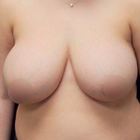
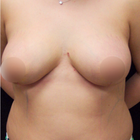
Front view
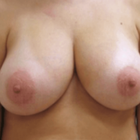
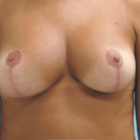
Front view
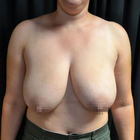
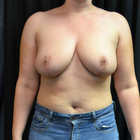
Front view
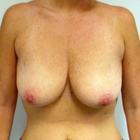

Front view


Front view


Front view
WHY US?
At Medijump, we're making medical easy. You can search, compare, discuss, and book your medical all in one place. We open the door to the best medical providers worldwide, saving you time and energy along the way, and it's all for FREE, no hidden fees, and no price markups guaranteed. So what are you waiting for?

Free

Best Price

Widest Selection

Risk-Free
What you need to know about Breast Reduction in Tunis
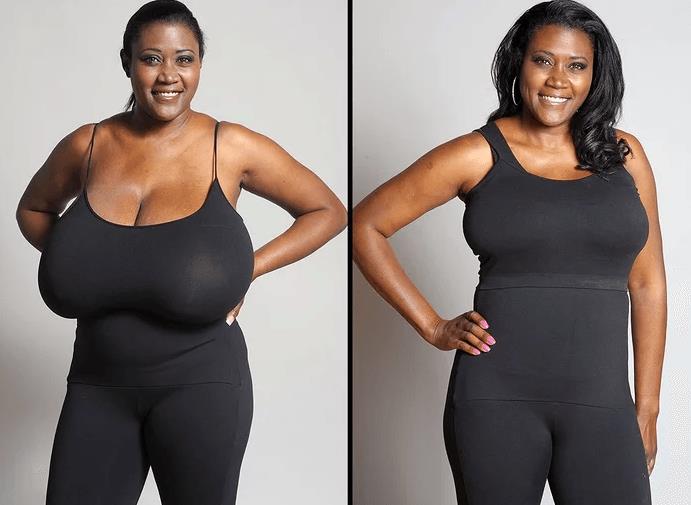
Female Breast reduction (reduction mammoplasty), also known as Reduction Mammoplasty, is a surgical operation to reduce the weight and volume of the breasts. During the procedure, fat, glandular tissue and skin are removed from the breasts, which are then reshaped, and the nipples repositioned. The nipple-areola complex (NAC) is preserved to ensure that lactational ability is not affected. The mammoplasty is performed for three reasons, aesthetic, physical and psychological.
Breast size is determined by genes, hormones, body frame, and weight. For most women, breast size is proportionate to the body, but for some, the breasts are particularly large. Large breasts can cause physical symptoms such as discomfort, backache, neck pain, and skin irritations. Oversized breasts can also cause psychological distress. Common complaints from women with large breasts include not being able to wear fashionable clothes and finding it difficult to take part in active sports. In these cases, breast reduction surgery can be an option.
What does a Breast Reduction Procedure Involve?
The procedure begins with making you lay in the supine position. Anesthesia is given to avoid pain during surgery. The area is sterilized and an incision is given around the areola and down your breasts. The flap of skin containing areola and nipple is displaced and excessive fat, breast tissue, and skin are removed to lessen the size of your mammary gland. In the next step, breasts are reshaped, areola and nipples are again placed over the reduced breasts and stitches are given.
In some cases, when a large amount of tissue and fat is removed, skin flap with areola and nipples is detached and repositioned at a higher level according to the new size. Drainage tubes are inserted into the breasts to drain away blood and fluid. Bandages are applied over the stitched incisions. You are asked to wear a surgical bra. It is tried to make both breasts look alike; however, small variations in the size of breasts and areola can be there.
What about Breast Augmentation?
Breast augmentation might also be performed on women who suffer from a condition called macromastia. It can be due to various reasons such as hypertrophy of adipose tissue in the breast, after menopause, postpartum, genetics, etc. In this condition, your breasts are sagging, and their size is bigger in proportion to your body, causing a number of problems. A woman affected by macromastia suffers from pain in the head, neck, shoulders, and back. Blood circulation and respiration are also disturbed. Men who experience gynecomastia can also opt for breast reduction surgery.
Another case where breast reduction can be an option is when breasts grow particularly large because of the use of hormone replacement therapy (HRT).
What is the cost of Breast Reduction in Tunis?
It's crucial to bear in mind that Breast Reduction is a substantial procedure. Consequently, contemplating the expense of this process within Tunis is critical. While the total cost might fluctuate based on individual circumstances and the intricacy of the operation, it typically includes the cost of anesthesia, hospital expenses, surgical equipment, and the surgeon's charge. Having a comprehensive understanding of the total price is critical to make an educated decision and align your financial planning accordingly.
Numerous factors could influence the expense of a Breast Reduction in Tunis. This includes the skill level of the surgeon, the complexity of the procedure, the kind of anesthesia applied, and postoperative care services. Thorough research and careful financial planning should enable you to handle the costs associated with the process. Also, if needed, you could consider alternatives for financial aid or insurance cover.
How Long Should I Stay in Tunis for a Breast Reduction Procedure?
Surgery can last between 2 to 5 hours and sometimes even longer depending upon the size of your breasts and amount of fat and tissue that is to be removed - an overnight stay as an inpatient is required. After your condition is monitored, you are discharged from the hospital. You have to stay for at least 14 days in Tunis for follow up procedures. Regular check-ups are advised in the first few days after surgery. Oral pain killers are given to deal with pain and swelling. Stitches are removed in 2 weeks after which you are allowed to go home. In case you notice any redness, secretion, abnormal pain or inflammation, consult your doctor.
What's the Recovery Time for Breast Reduction Procedures in Tunis?
It takes several months for recovery from a breast reduction surgery. You cannot go to work for 1 to 2 weeks after the surgery. There will be pain and swelling in the initial days for which you are given some medicines. Avoid intensive physical activity for at least 1 month. You are asked not to wear underwire bras for a few months. You are allowed to wear a normal bra after 4 weeks. It takes 6 to 8 weeks for the swelling and tenderness to go away. Even after complete recovery, scars do not disappear. However, they are faded and become less visible. Changes continue to take place for a year after going through this surgery.
What sort of Aftercare is Required for Breast Reduction Procedures in Tunis?
You should consider the following points to take care of yourself after surgery:
- Do come for regular check-ups.
- Take your medicines regularly, as and when prescribed by your physician.
- Make sure that someone lives with you to look after you.
- Follow a healthy diet plan for a better recovery.
- Do not wear fancy, underwire bras in the early days. Wear surgical bra only.
- Wear loose clothes, tees, and shirts.
- Avoid excessive, unnecessary movement of your breasts.
- Do not take a bath in the first few days, a wet bandage can be the cause of infection.
- Do not ignore any kind of soreness, redness or abnormal secretions from your breasts. Visit your doctor immediately.
- Drink plenty of water. It is very effective for a quick recovery.
- Use icepacks to help you with swelling.
- Do not try to lift heavy objects because your movement is restricted due to stitches. It can open up your stitches before time.
- Do some stretching exercises when told by your physician.
What's the Success Rate of Breast Reduction Procedures in Tunis?
Breast reduction mammoplasty is found to be successful in most of the cases. According to a survey, 80% of women are satisfied with the results of the surgery. This effectively reduces neck pain, back pain, headache, and shoulder pain, with your breasts no longer sagging and causing these problems. Respiratory and circulatory problems are also resolved. In case this surgery is not successful, it leaves prominent scars which can be subjected to hypertrophy. There might be less than the required amount of tissue and fat removal. Sometimes, more breast tissue is removed leaving your chest flat. A secondary breast reduction surgery is performed to cope with this.
For an in-depth and personal review of the pros and cons of Breast Reduction, including before and after shots, watch this video blog.
Are there Alternatives to Breast Reduction Procedures in Tunis?
Following are some alternatives to reduce your breast size without going through a surgery:
- Weight Loss: losing weight can also be effective in the case of reducing breast size. Some exercises are there to help you decrease your size. Exercise removes excess adipose tissue making your breasts smaller.
- Liposuction: it is a less invasive method in which a small incision is given to insert a cannula and fat is sucked from it reducing breast size. There are least scarring and recovery is faster.
- Fitting bra: it is not a permanent method to reduce your breast size but a specialized fitting bra can be helpful in making your breasts look smaller. It is not a standard bra.
What Should You Expect Before and After the Procedure
Knowing what to expect before and during a Breast Reduction helps you prepare physically, intellectually, and emotionally for the experience. A comprehensive health examination is scheduled before the procedure. Along with preparing for the procedure by following the pre-surgery instructions supplied by your healthcare institution, this is also your chance to discuss your hopes and concerns with the surgeon. Your food routine, medication regimen, and lifestyle practises might need to change as a result of this preparation.
After the surgery, it's common to feel some soreness, inflammation, and sometimes even bruising. All of these symptoms can be treated with the right medication. It's important to unwind, refrain from strenuous activity for a few weeks, wear a bra with a specific purpose, and follow a specific wound care regimen.
What are Potential Risks of Breast Reduction?
The Breast Reduction, similar to any other surgical procedure, poses possible risks and complications such as infection, bleeding, altered sensation in the nipple or breast due to anesthesia, and difficulties in breastfeeding post-operation. It is imperative to have a detailed discussion about these potential issues with your healthcare professional at the consultation phase.
It's important to know that the probability of these risks occurring is minimal and can be reduced further by opting for a well-respected clinic and surgeon, following the pre-surgical instructions, and adhering to the aftercare routine provided.
Whilst the information presented here has been accurately sourced and verified by a medical professional for its accuracy, it is still advised to consult with your doctor before pursuing a medical treatment at one of the listed medical providers
No Time?
Tell us what you're looking for and we'll reachout to the top clinics all at once
Enquire Now

Popular Procedures in Tunis
Prices Start From $85

Prices Start From $120

Prices Start From $692

Prices Start From $236

Recommended Medical Centers in Tunis for Breast Reduction

- Interpreter services
- Translation service
- Religious facilities
- Medical records transfer
- Medical travel insurance
- Health insurance coordination
- TV in the room
- Safe in the room
- Phone in the room
- Private rooms for patients available

- Interpreter services
- Translation service
- Religious facilities
- Medical records transfer
- Medical travel insurance
- Health insurance coordination
- TV in the room
- Safe in the room
- Phone in the room
- Private rooms for patients available

- Interpreter services
- Translation service
- Religious facilities
- Medical records transfer
- Medical travel insurance
- Health insurance coordination
- TV in the room
- Safe in the room
- Phone in the room
- Private rooms for patients available

- Interpreter services
- Translation service
- Religious facilities
- Medical records transfer
- Medical travel insurance
- Health insurance coordination
- TV in the room
- Safe in the room
- Phone in the room
- Private rooms for patients available

- Interpreter services
- Translation service
- Religious facilities
- Medical records transfer
- Medical travel insurance
- Health insurance coordination
- TV in the room
- Safe in the room
- Phone in the room
- Private rooms for patients available

- Interpreter services
- Translation service
- Religious facilities
- Medical records transfer
- Medical travel insurance
- Health insurance coordination
- TV in the room
- Safe in the room
- Phone in the room
- Private rooms for patients available
Breast Reduction in and around Tunis
About Tunis
Tunis is the capital and the largest city of Tunisia and is the center of government and administration as well as the center of commercial and cultural activities. It is divided into two parts, the old city known as Medina and the new city or Ville nouvelle. Even though it is located on the southern shores of the Mediterranean Sea, the city does not have many beaches. Still, it has managed to attract millions of tourists in 2018 thanks to its rich history displayed in numerous ancient buildings. These buildings have an enchanting blend of North African and French Architecture that will leave anyone in awe. Many tourists come to see the Roman ruins of Carthage or to stroll around and shop in the Medina.
Tunis is known to have a high standard of healthcare, which attracts an increasing number of medical tourists each year. Many of the medical tourists come from other African countries that have an inferior healthcare system. However, the city’s excellent reputation in cosmetic surgery and dental treatment appeal to many patients from Europe, the Middle East, and Asia. The private medical centers are armed with the best equipment and English speaking staff. The Tunisian Ministry of Health regulates cosmetic and plastic surgeons to ensure that there is a high standard. In addition to exceptional healthcare, Tunis also offer attractive prices for medical treatment and the cost of living.
Popular Areas in Tunis
Although it is the largest city in Tunisia, Tunis can feel like a compact city and can be explored on foot. The city has a number of famous attractions that are always packed with tourists.
- Carthage was founded in the 9th century BC and was once a powerful empire of the Mediterranean as well as home to a wonderful civilization before being destroyed by the Romans in the Third Punic War. It was then to become an important Christian center until the Islamic invaders destroyed it. Today, the ruins have become a UNESCO World Heritage Site that tourists can visit.
- The Medina in Tunis is one of the most remarkable medieval medinas in North Africa. There are over 700 monuments within the area, from mosques to madrassas to historical places. It is easy to get lost in the impressive maze-like alleyways, but tourists are encouraged to admire the Islamic architecture and art or learn more about the city’s history. Tourists can also shop in one of the souqs selling everything from shisha pipes to shoes or enjoy one of the cafes.
- Sidi Bou Saïd is a picturesque cliff-top village with cobbled streets, blue-and-white walls, and glimpses of pristine blue waters. It is probably one of the most beautiful places in Tunisia. The beautiful architecture is a blend of the Ottoman and the Andalusian. It is now a sleepy fishing village perfect for anyone who wants to get away from busy city life. The village has been a gateway for artists, bohemians, and pilgrimage for centuries.
- Bardo Museum is the second-largest museum in Africa and the main attraction of this museum is the ancient Roman mosaics recovered from Carthage. The museum also exhibits Greek statues, artifacts of the region’s Berber, and the accomplishments of the Islamic culture in the country. Other than the exhibitions, the building itself is decorated in impressive historic Islamic decorative arts.
Weather and Climate in Tunis
Tunis has a hot-summer Mediterranean climate meaning the city enjoys warm and sunny weather all year round. The summer can be hot and dry because rain is very rare and the summer usually lasts from June to August and the average temperature is around 25 °C but can get as high as 40 °C. July and August are the high tourist season, especially at the beach resorts. The city begins to get rain in autumn, often accompanied by a short thunderstorm. The winter is the wettest season of the year because it can rain every two or three days and the temperature can drop to 7 °C in the morning and 16 °C in the afternoon. The rainfall decreases in spring, and in March, the temperature ranges between 8 °C to 24 °C and the sunshine usually becomes dominant in May.
Getting Around in Tunis
Tunis-Carthage International Airport is the main airport in Tunisia and the airport connects Tunis with other cities in the country as well as the rest of the world as it serves flights to and from the Middle East, Africa, and major Europeans countries. It is the hub for Tunisair, Tunisair Express, and Nouvelair, but there are not many budget airlines operating flights from the airport. To get to the city center from the airport, tourists can opt for a taxi or bus. The bus is operated by the SNT bus line and departs every 30 minutes. It is very affordable with a single ticket costing less than 1 TND. There is also a more luxurious and expensive bus line known as the TUT bus and the bus departs every 15 minutes. If you want a more private mode of transportation use an airport taxis and they are usually metered.
Tourists have plenty of options to get around Tunis. There is a tram system in the city with inexpensive tickets, usually around .48 TND. However, be aware that it can be packed during the rush hours. Taxis are a good option to get around, the taxis are metered, and the base fare is around .4 TND but can be much more expensive if you hail one off the street.
Tourist Visas in Tunis
Nationals of 97 countries including Australia, China, Singapore, the United States, and Russia can enter and stay in Tunis for up to 90 days without a visa. Other nationalities not listed in the visa exemption agreement are advised to check at their nearest Tunisia embassy or consulate. The country provides an online visa application to simplify the process of obtaining a visa to enter the country.
Additional Information
- Local Currency: Tunisian dinar (TND) is the official currency of Tunisia. 1 USD will get you 2.61 TND.
- Money & Payments: ATMs are widespread in Tunis. Credit Cards, particularly MasterCard and Visa, are accepted in most top-end restaurants, hotels, and shops. Tipping is by no means mandatory but will be greatly appreciated.
- Local Language: Arabic is the official language and French is very common. English is not widely spoken except in tourist areas and hospitals.
- Local Culture and Religion: Most of the population follows Islam, but there are small groups of Christian and Jews.
- Public Holidays: The city celebrates major nationals and Islamic holidays such as Independence Day, Eid Al-Fitr, and Prophet Mohammed’s Birthday.
Popular Searches
- Plastic Surgery in Thailand
- Dental Implants in Thailand
- Hair Transplant in Thailand
- Breast Augmentation Thailand
- Gastric Sleeve in Thailand
- Gender Reassignment Surgery in Thailand
- Laser Hair Removal in Bangkok
- Botox in Bangkok
- Dermatology in Bangkok
- Breast Augmentation in Bangkok
- Coolsculpting in Bangkok
- Veneers in Turkey
- Hair Transplant in Turkey
- Rhinoplasty in Turkey
- Stem Cell Therapy in Mexico
- Rhinoplasty in Mexico
- Liposuction in Mexico
- Coolsculpting in Tijuana
- Rhinoplasty in Korea
- Scar Removal in Korea
- Gastric Sleeve in Turkey
- Bone Marrow Transplant in India
- Invisalign in Malaysia
- Plastic Surgery in the Dominican Republic
- Tummy Tuck in the Dominican Republic
- Plastic and Cosmetic Surgery in Poland
- Rhinoplasty in Poland
- Hair Implant in Poland
- Dental Implants in Poland
- IVF in Turkey





